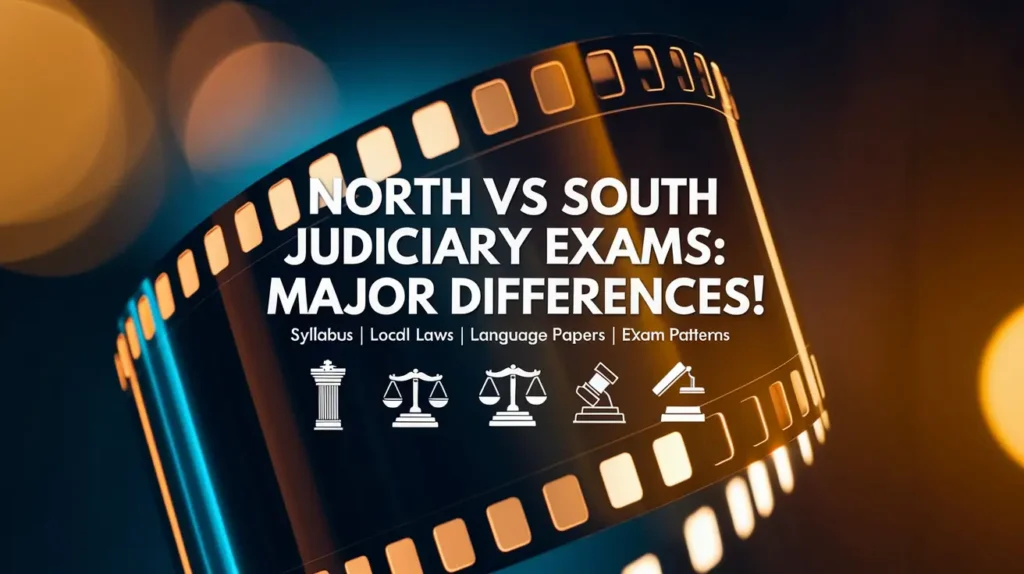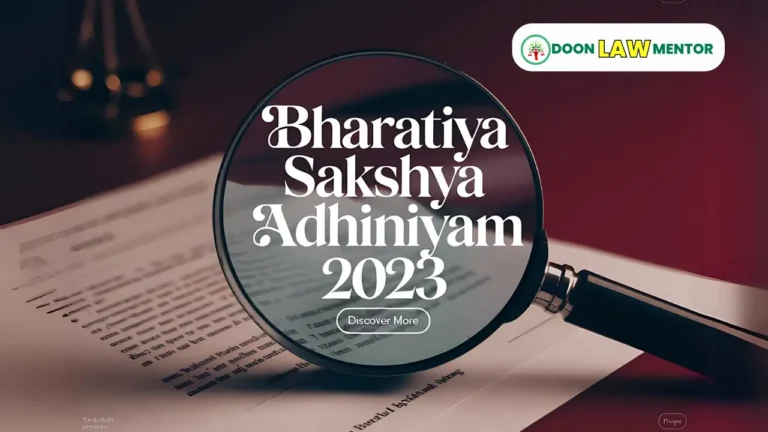Judiciary exams in India are among the most prestigious and competitive examinations. Conducted by various states under their respective public service commissions or High Courts, these exams recruit judicial officers who uphold law and justice. Although the fundamental legal knowledge required remains similar across India, significant regional differences exist between North Indian vs. South Indian states regarding exam patterns, syllabus coverage, local laws, language requirements, and eligibility criteria. Understanding these nuances is vital for judiciary aspirants aiming for success.
Table of Contents
This comprehensive blog post offers detailed insights into how judiciary exam preparation varies between North Indian and South Indian states, guiding aspirants to strategically approach their preparation based on regional variations.
Overview of Judiciary Exams in India
Judiciary exams, commonly known as PCS-J (Provincial Civil Service – Judicial), are state-specific examinations designed to recruit judicial magistrates and civil judges. These exams typically consist of three stages:
- Preliminary Examination: Objective-type questions.
- Main Examination: Descriptive papers on law subjects and language proficiency.
- Interview: Assessment of personality, legal knowledge, and suitability for judicial roles.
Despite similarities, substantial regional differences influence preparation strategies significantly.
Detailed Comparison of Exam Patterns: North vs. South
North Indian States Judiciary Exams
North Indian states like Uttar Pradesh, Bihar, Haryana, Rajasthan, Madhya Pradesh, Delhi, Uttarakhand, Himachal Pradesh, and Punjab generally have:
- Prelims: Emphasis on factual recall and static law provisions.
- Mains: Long-form, essay-style answers; emphasis on statutory provisions and landmark cases.
- Language: Mandatory Hindi proficiency.
South Indian States Judiciary Exams
South Indian states such as Tamil Nadu, Kerala, Karnataka, Andhra Pradesh, and Telangana feature:
- Prelims: Analytical questions testing conceptual clarity and logical reasoning.
- Mains: Concise, precise answers; greater emphasis on case-law analysis.
- Language: Mandatory proficiency in respective regional languages (Tamil, Kannada, Malayalam, Telugu).
Differences in Syllabus Coverage
Core Subjects Across India:
- Constitutional Law
- Criminal Law (IPC/BNS, CrPC/BNSS, Evidence Act/BSA)
- Civil Procedure Code (CPC)
- Indian Contract Act, Transfer of Property Act, Specific Relief Act, Limitation Act
North Indian States Specific Syllabus:
- Extensive coverage of Land and Revenue laws.
- Heavy focus on procedural aspects.
Example:
- UP: U.P. Zamindari Abolition Act, UP Urban Buildings Act
- Bihar: Bihar Tenancy Act
South Indian States Specific Syllabus:
- Emphasis on personal laws, family laws, and tenancy laws with a regional flavor.
Example:
- Tamil Nadu: Tamil Nadu Buildings (Lease and Rent Control) Act
- Kerala: Kerala Land Reforms Act
Importance of Local Laws in Judiciary Exams
Local laws significantly impact judiciary exams, and aspirants must thoroughly study these regional statutes, which frequently form a major part of mains examinations.
- North India: Land, property, revenue, tenancy laws are frequently tested.
- South India: Personal laws, tenancy acts, local administrative laws feature prominently.
Language Paper Requirements
- North Indian States: Mandatory proficiency in Hindi, including translation from English to Hindi, Hindi essays, and comprehension.
- South Indian States: Mandatory proficiency in state-specific languages (Tamil, Kannada, Telugu, Malayalam).
Tip: Regular practice of translations, language-specific legal terms, and essay writing is crucial.
Differences in Eligibility Criteria
Age Limit:
| Region | Lower Limit | Upper Limit |
|---|---|---|
| North | 21-23 years | 35-40 years |
| South | 21-22 years | Up to 48 years (Tamil Nadu) |
Educational Qualifications:
- LL.B degree is compulsory across all states.
Exam Difficulty and Success Rate
North Indian exams, such as UP, Rajasthan, and Bihar, see high competition due to the larger applicant pool, making them challenging. Conversely, South Indian states like Kerala and Tamil Nadu have relatively fewer aspirants, slightly reducing competition but demanding deeper analytical skills.
Answer Writing Styles: North vs. South
North Indian States:
- Emphasis on structured, elaborate answers with detailed statutory references.
- Extensive use of landmark judgments is expected.
South Indian States:
- Answers should be concise, analytical, and precise.
- Greater reliance on logical reasoning and interpretation skills.
Case Studies and Real Examples
- North India: In Uttar Pradesh PCS-J, lengthy essays covering multiple case laws are standard practice.
- South India: Tamil Nadu Judiciary exams require brief, focused answers highlighting judicial precedents succinctly.
Important Landmark Judgments by Region
Frequently cited in North Indian Exams:
- Kesavananda Bharati v. State of Kerala
- Minerva Mills v. Union of India
- Maneka Gandhi v. Union of India
Frequently cited in South Indian Exams:
- Champakam Dorairajan v. State of Madras
- Selvi v. State of Karnataka
- Puttaswamy v. Union of India (Right to Privacy)
Preparation Strategy for North Indian States
- Master local land, revenue, and tenancy laws.
- Regular Hindi essay writing and translations.
- Extensive practice of factual recall through MCQs.
- Develop structured answer-writing skills with regular mains practice.
Preparation Strategy for South Indian States
- Deep analytical understanding of legal concepts.
- Proficiency in regional language writing.
- Practice concise, precise, and analytical answer writing.
- Familiarity with regional landmark judgments and case analysis.
Common Mistakes to Avoid
- Ignoring local laws specific to chosen states.
- Underestimating the importance of language papers.
- Lack of practice in answer writing styles specific to the region.
Expert Tips for Judiciary Exam Aspirants
- Regular mock tests simulating regional exam patterns.
- Daily current affairs updates with regional judicial developments.
- Personalized mentorship for strategic guidance tailored to the region-specific exam.
FAQs Section
Q1: What are the major syllabus differences between North and South Indian Judiciary Exams?
A: North Indian exams emphasize land/revenue laws and Hindi language papers, whereas South Indian exams focus on personal laws, tenancy acts, and proficiency in local languages.
Q2: How important are landmark judgments in judiciary exam preparation?
A: Landmark judgments are critical in both regions, but the approach varies—North states expect detailed explanations, while South states require precise analysis.
Q3: Which states are known for higher Judiciary Exam competition?
A: North Indian states like UP, Bihar, Rajasthan generally have higher competition due to a larger candidate pool.
Q4: What is the age limit for the Tamil Nadu Judiciary exam?
A: Up to 48 years.
Q5: How do language papers differ in North and South Indian Judiciary exams?
A: North states test Hindi proficiency; South states test respective regional languages.
Q6: Is coaching necessary for Judiciary exams?
A: While not mandatory, professional coaching provides strategic advantage and structured preparation.
Conclusion and Final Thoughts
Judiciary exam preparation must be strategically tailored based on the region you’re targeting. Understanding regional variations, mastering local laws, and adapting to regional exam patterns are keys to success.
Call-to-Action (CTA)
For comprehensive guidance, personalized mentorship, and structured courses tailored to your targeted state judiciary exam, join Doon Law Mentor. Enroll today to maximize your chances of success.
JudiciaryExam #PCSJ #NorthIndiaJudiciary #SouthIndiaJudiciary #JudiciaryPreparation #DoonLawMentor #LegalCareer #LawStudents #DoonLawMentor










